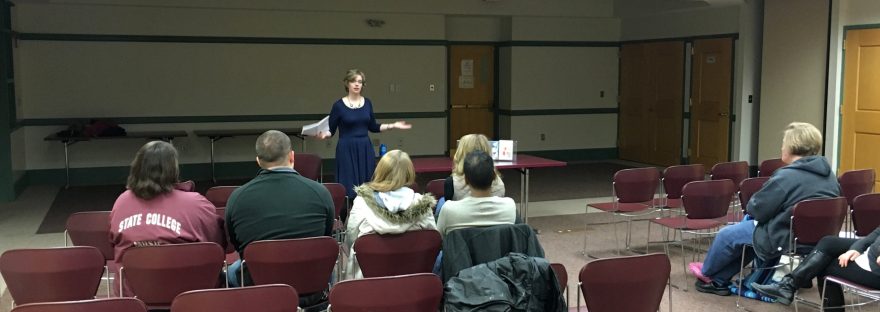We are (almost) halfway through January! How is the month looking for everyone else?
Here, we’ve had:
Rearranged our living room and can’t figure out why we waited 3.5 years to set it up like this.
Trip to Grandma’s house to finish off our holiday traveling/festivities.
We had snow this past weekend, enough for sledding, and by Wednesday it had all vanished. No one in this household is particularly pleased about this. I want to use my cross-country skis; the kids want to play in the snow; Carl, believe it or not, wants to shovel. Plus we all just prefer winter to be winter. Hmph.

Kids are enthusiastically participating in the Read-Aloud Revival 31 Days Challenge–they have only missed a few days of reading out loud for at least 15 minutes. Gracie, at least, usually goes longer. Joy is more these-are-the-rules-so-we-should-follow-them and so even if she’s at a really good place, she stops as soon as the timer beeps. It’s great for Gracie in building her confidence (she’s a fantastic reader but thinks she can only handle easy books) and for Joy in forcing her to slow down and process what she’s reading (she reads SO FAST that I’m certain she only takes in about 80% maximum of whatever she reads).
I finally passed the halfway point on my current draft of Magic in Disguise, the next Maia and Len book. Technically this is the first book in the Whitney & Davies series, as this is the one that really starts them off on their detecting careers together, but it is the second book about them–Magic Most Deadly, I’ve decided, really works best as a prequel when compared to how I want the rest of the series to go. Is that over-complicated? Sorry. At any rate, every step of the way with this book has been a slog, but the fog is starting to lift. I had it ready to send to my critique partner (which is when I consider a story done the same way a cake is done–all the editing and polishing I do after that is icing and decorating, but the heart of it is finished) last May, and ever since she sent it back to me I’ve been crawling on it. But I’m getting there, and it’s going to be ready for beta-ing by the end of the month, barring any unforeseen accidents like spraining an ankle or some such nonsense (rap wood).
We got back to Classical Conversations (the kids’ homeschool co-op) and back to school in general. We aren’t quite where I’d like to be yet–our morning time keeps getting started late, so we haven’t been able to work in our Shakespeare memorization this semester yet, and schoolwork keeps spilling into our free time in the afternoons–but we’re getting there. It’s always tricky settling back into our routine after winter break.

I am taking a break from refined sugar and wheat for January, in an attempt to break my body of its dependency on both. I know from experience that a little is fine, a lot wrecks me, and thanks to the holidays, I’ve been having a LOT of both. I’ve also started exercising again, something that slid away when I sprained my ankle last May (see above) and never got picked back up. So far, I’m grumpy and sad because of the diet change, but the exercising is going well.
I’ve managed to catalog each of the books I’ve read so far this month in a book journal. Whether that means I’m reading more mindfully is still up in the air.
Getting prepared for the Bible Study I’m co-leading this semester for the women in our apartment building. We’re going to be going through Philippians this semester, which should be great. I’ve discovered somewhat to my surprise that I really enjoy teaching and leading a study, and thanks to Carl, I have commentaries a-plenty at my fingertips. And I can always ask him if there’s any particularly tricky translation issues!
The only other really interesting thing that’s happened this month is that Carl finally convinced me to give Duolingo a try, and I’m diving back into French. Parts of the app really frustrate me (like when you fail a lesson because they expect you to know something they haven’t yet taught you), but overall it’s been fun. I thoroughly enjoyed taking French back in college and have always wanted to get back to it, and so now I am! I’m already wondering what language I should tackle next after this, Russian or Welsh. I desperately wanted to learn both of them in high school, and now I have a chance!
Oh, and I also got to do an impromptu mini-presentation at CC this week–all the kids have to give an oral presentation each week, and this week they got to pick a topic out of a hat. One of the drawn topics was “why are books so important,” and the tutor laughed and asked me if I wanted to take that one, so I said sure. It wasn’t anywhere near as dramatic as my library presentation last March, but it was a lot of fun and made me think how much I’d love to give a proper, adapted version of my “why stories matter” speech at a school or children’s library sometime. Add that one to my dream list!
And that is my mid-January report. Nothing tremendously spectacular, but I don’t want to look back in December and not remember anything about this month, so I’m writing it down even if it seems simple and small. It’s the little moments that add up to a life anyway.








